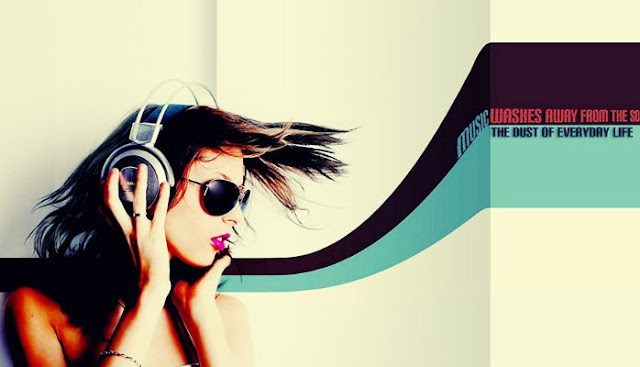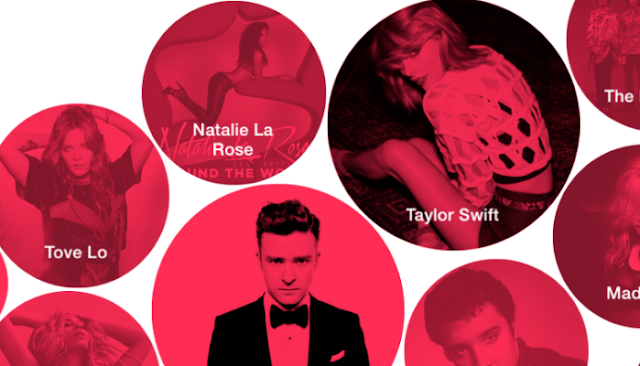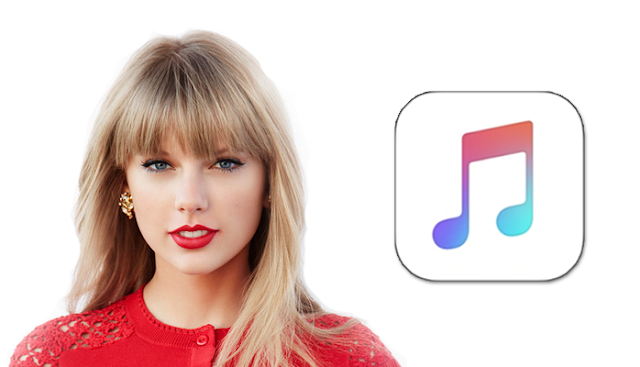Happy Apple Music launch day - or is it?
My recent post about the issues of streaming, Taylor Swift and Apple created some interesting discussions and although it was concluded in some small way with a grandiose statement that we need to "Move the discussion back to the art and away from the money"(ish), I think that there needs to be a bit more substance to exactly how that could be done. Here is my shot at it.
However, before looking for a solution, we need to eliminate the alternatives...
- Musicians cannot withhold their music from streaming services in an attempt to blackmail the tech companies. There are far too many musicians in the world who will see it as an opportunity to stay on and get a higher percentage of plays. Streaming is the future of music consumption - we have to find a way to make it work and stop fighting it.
- Praying for a revival of CD purchases just can't work because the infrastructure of the record shop is all but gone. The real value of a CD is to go to a shop and look through them and then chat to the staff. The only option is to buy a CD online, but why bother when you can pay the same and get it instantly on the only devices you are going to listen to it on? The honest answer is we won't. Tangible music products are done, with even the Vinyl revival being priced out out of most music consumer budgets - £20 for a single album - come on!
- Hoping that live music will be the last saving grace? Not a chance. Audiences are going to less live music because the quality of live music is terrible as we are swamped by inexperienced bedroom musicians, but more importantly because as and when a record becomes popular the artists just cannot react quick enough. At any time a record can become hugely popular anywhere in the world and then with the brief shelf life of music, by the time an artist could get there, the audience has moved on. In the past, the marketing plan for an album would release singles in the same order in each territory to time perfectly when the band was about to tour there. With digital making everything available everywhere at the same time it is impossible to keep up with the demand for 99% of musicians.
- How about syndication, advertising, soundtracks, TV music - put simply - did you ever get excited to hear music that was motivated only by being accompanied by an Olympics compilation, or inspired by the menu screen on EA Sports FIFA (insert year here)? No, me neither. Yes it may generate income for musicians, but it also creates horrid music.
Now I appreciate that there may be other discussions going around, and I'll happily listen and respond in the comments section, but from my recent analysis, these are the main suggestions and calls to arms, so I have hopefully addressed them in a manner which will reaffirm streaming as the major device to get music to the audience.
So, the solution? Pricing. Over to you to go and fix it, my work here is done.
Well if you insist, buckle in, this going to be a long one, so I'll explain myself. It is obvious and simple, but no-one seems to consider it a serious option. The problem with the music industry is that it has not for a long time had any say in the pricing of its product, and even less so now with streaming. So this means that the price we pay for music is determined by...companies who don't need to abide by the basic laws of business when putting together a pricing model.
The first rule of any business model is to first look at your costs and then price your product accordingly.
It is actually incredibly simple - if you can't make money doing it then don't do it (social good and charitable causes obviously excluded). But the music industry needs to generate profit to continue, so simple economics it is - get more money in than you spend.
Simple? Well yes, if the producer of the product has a say in the price of the product and also has a say in what the retailer pays them for it, the RRP. Imagine if a car retailer says they are going to sell every car, BMW, Mercedes, Porsche, for the same price as a Ford. What would happen? Every make of car more expensive than a Ford would be forced to either make cheaper cars or go out of business. But due to a load of much more complicated rules and contracts, the respective producer of the cars sets the price and the retailer must then pass on this to the customer. They made the cars and it costs them to do so, so they decide on what it is worth.
Music is exactly the same - it isn't made for free. Musicians and record labels have to fork out pretty good chunks of cash on instruments, studios, artwork, producers, engineers, marketing and on it goes. It is not Apple and Spotify paying this, it is the music industry. And then what happens? They just hand the product over and hope for the best while continuing to invest further money on touring, marketing for singles, travel, maintenance of equipment etc etc etc. But still they do not have a say in what it is worth.
So why do Apple and Spotify (and others, but these are the easiest and largest to use as examples) set the prices they set? In short, because those are the minimum levels they need to generate the additional more significant income through their other income streams. The direct income from music streaming is not a revenue stream which is essential to their survival.
Apple want you to buy only Apple hardware, and they do this by making you (want to) spend every waking hour on one of their devices - that is where they make their real money - not the small change from music sales. Spotify wants to keep you in their platform for as long as possible because the longer you are there the more likely you are to listen to adverts or click on a link. The longer you are there, the greater the audience and the more they can charge for companies to advertise. So hardware for Apple, advertising for Spotify, and yet musicians see none of this income (Spotify does not share all its 'other' income streams with musicians as it would have you believe). The big money these companies make is well and truly hidden from us all and if we don't know about it how can we ever fight for a share of it.
Well, we can't, so we have to fight with what we do know - which is how many plays we get and how much money we get from it. And this is where it gets a bit challenging (not just to resolve but also I would get for you as a reader already getting a little twitchy at the ridiculous length of this post - but hey, I am trying to fix an industry here, stay with me). We have to increase the cost of music again, gradually with the tech companies in a beautiful harmonious partnership.
Streaming is how we will now consume music and any discussions suggesting otherwise are distracting us from making it work in the same way we were distracted by Napster and missed out on iTunes.
Andrew Dubber wrote about the digital media age and how the digital audience will stop hoarding. There is no point in collecting music any more. The future is to have everything we need available wherever we are instantly. Streaming is the only solution. This is not just the case for music, but it is inevitably a battle the film, book and TV industries will end up losing as well if they don't learn from the music industry - which they do seem to be doing much better than the music industry did.
We are forever stuck with getting the scraps of the subscription revenue. But that does not mean we can't work with the tech companies to restructure these revenue streams to generate much more realistic and sustainable revenue from the consumer. We have been conditioned in to thinking that £9.99 a month is what we should pay for music by companies who have paid £0 to make the product in the first place. What if they suddenly tell us that that £9.99 will only get us 100 minutes of music month? What if we are told that we have to nominate just ten artists who we can fully stream a month, and the rest is just a taster? What if the tech companies have to fork out an initial purchase price for music before it is allowed to be played - a significant amount per album rather than a blanket annual deal. By pushing the cost to them of playing music up, they will have to adjust their subscription prices accordingly.
I am not actually putting these forward as real ideas, but just as examples that there are an infinite number of ways in which music can be streamed which will generate more income for the musicians. The discussion we need to be having is with both the tech companies and the audience to agree, based on what it costs us to make a record and then pay our bills, as the absolute minimum that we will accept.
People will eventually pay what they are told to pay after they get over this "right to music" they think they were all born with. People are already getting very bored with the total lack of originality in music, the shameful drop in live music performance, the same songs (literally) for six months at a time in the charts and radio, and no new artists lasting further than their grateful second album.
But don't feel sorry for the musicians - they are not the only music professionals suffering.
Musicians have also spent the last decade trying to replace all the skilled and experienced professionals who have covered all the boring business and technical stuff they can't do. Before taking on the tech giants we need to get our own house in order and start to value each other much more. If you have ever actually met anyone who works at a record label, they do it because they adore music and want to help great music be made and get out to an audience - they are in it for the love of music and very rarely the money. You can of course throw dramatic generalisations at the major labels, but even there you will find a good few layers of music lovers before you reach those who are only looking at the bottom line. I am of course not just talking about record labels here, but studios, photographers, technical people - they are all trained to allow musicians to get on with the process of making and performing music and helping them realise their vision. No matter how clever technology gets, an iPhone will never capture the essence of your performance like a professional photographer will, and Garage Band will never translate the noise in your head in to the sound from the speakers in the way a producer can.
Look, the fact is that music these days is garbage, total rubbish , and people are starting to care a bit more - why else would they be so bothered about what they pay for it? They want great inspiring music and I am willing to bet if we could just get Apple and Spotify to see that and work with us - we might just save our industry and get some great music made at the same time. At the end of the day, without great new music, what are Apple and Spotify going have left to sell in ten years time? Well other than Taylor Swift of course.
Written by
















